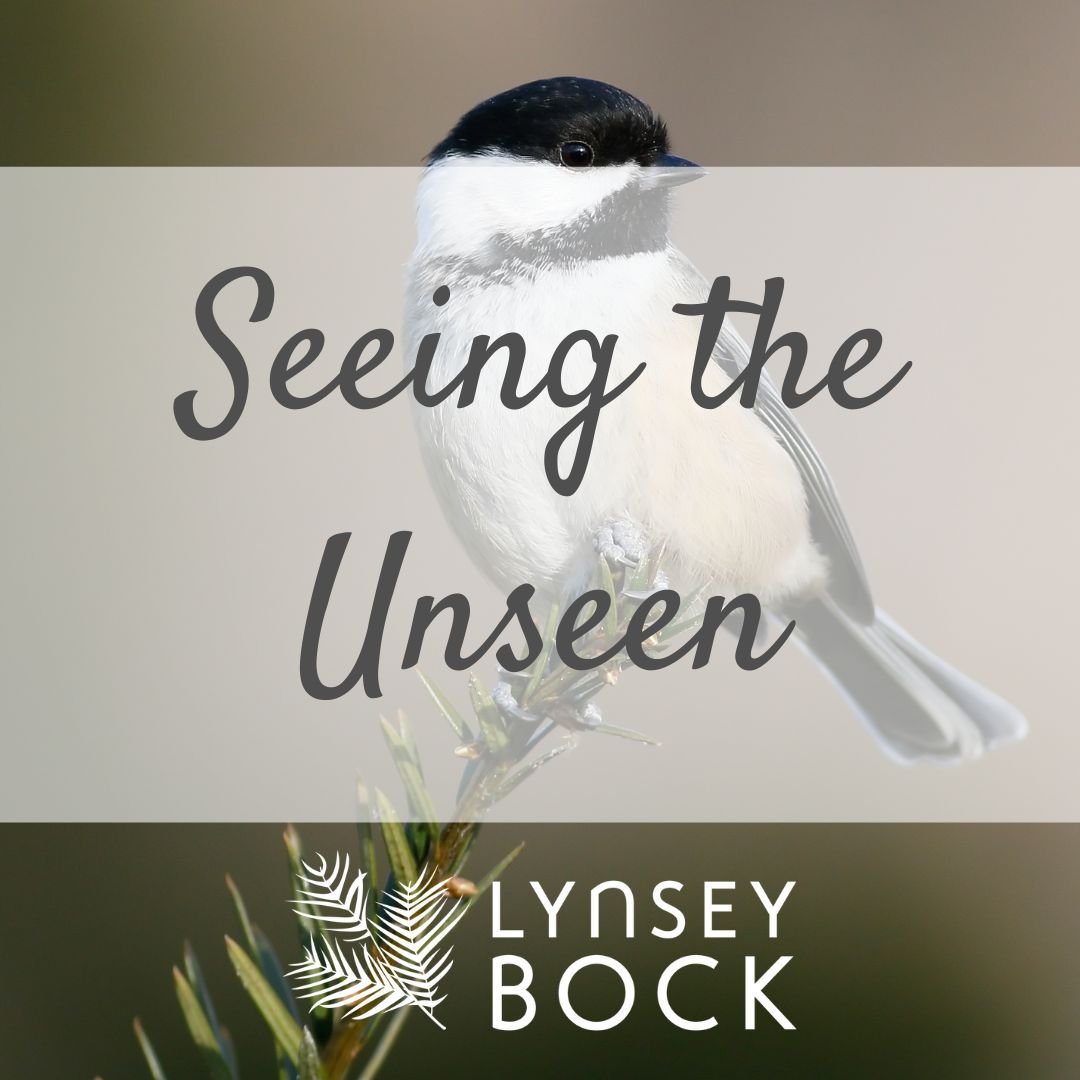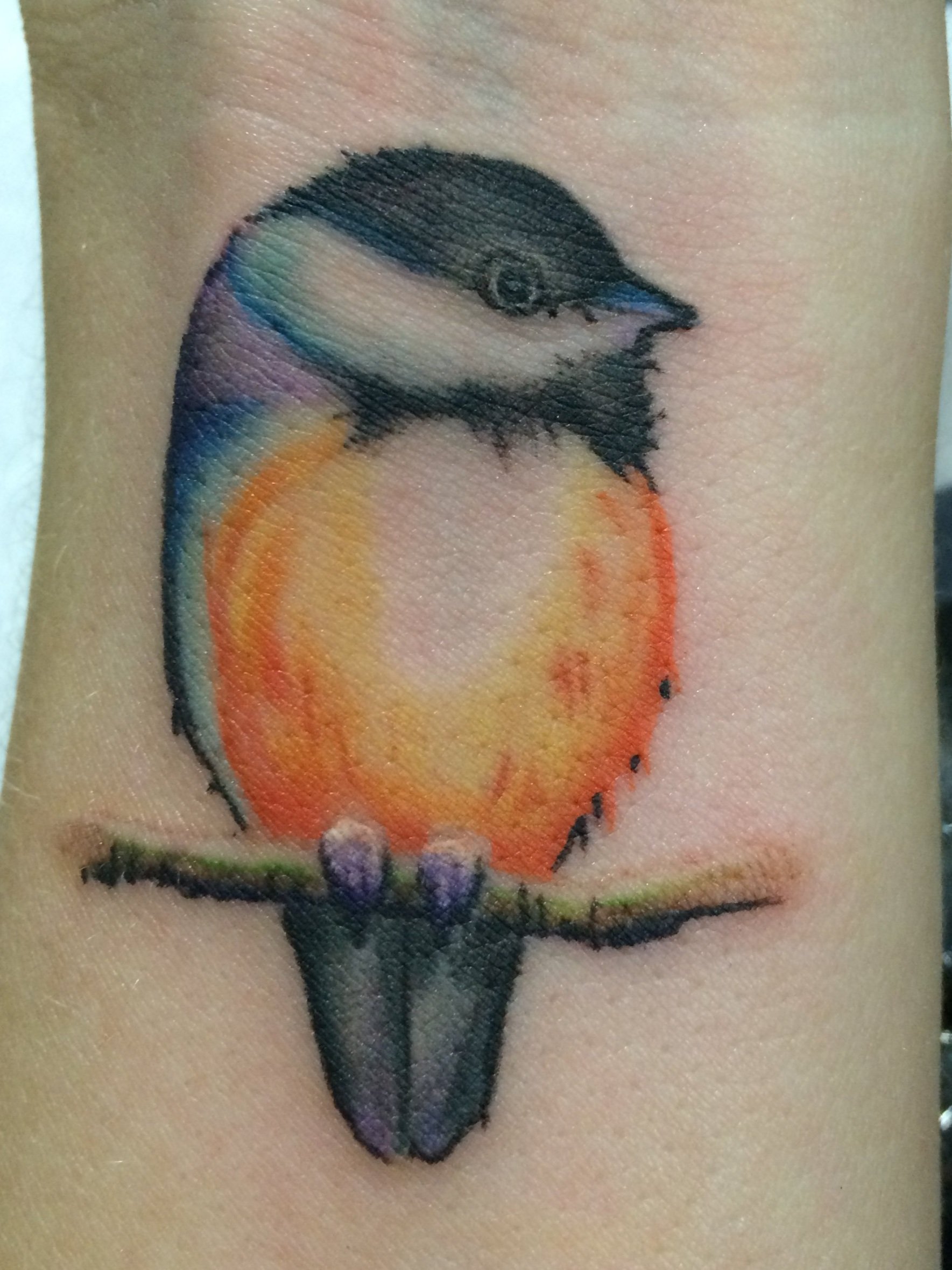If you ever visit my house, you may notice a lot of chickadees. And not just the ones visiting the bird feeders outside our front windows. Drawings, paintings, and carvings of black-capped chickadees are scattered throughout our home. From an interior design perspective, it may seem excessive or theme-y. Why so much of the same type of bird over and over again?
It’s not because our home needed more decorations. It’s because I always need help seeing what I can’t see.
Over ten years ago, I had lost hope. I had lost sight of God’s faithfulness. At times I felt abandoned by him. And when I cried out to God, a chickadee helped me realize that he had been there all along.
When I started my undergraduate degree in 2006, I didn’t even question whether I would be able to find a job as a secondary English teacher when I graduated. At the time something like half of the teacher workforce was expected to retire in the subsequent ten years. Getting a job would be no problem.
By 2011, I had finished my B.A. in English and my Master of Arts in Teaching, gotten married, and the Great Recession was in full swing. Teachers were being laid off by the hundreds. Job postings for English teaching positions would get 1,000 applicants in a single day. There were waitlists to get on the substitute teacher lists. My husband was already trying to provide for us by working three jobs while going to grad school. I quickly realized I was going to put my teaching aspirations on hold and look for work outside of education.
By the fall of 2011, I had found two part-time jobs. Neither was in teaching, but they paid enough for us to make ends meet. Both jobs had difficult dynamics that caused a lot of stress for me. I dreaded going to work. My first year out of college and newly married wasn’t turning out how it was “supposed” to. I cried out to God but often felt like he wasn’t listening. It seemed to me like my prayers were being ignored. I wanted to believe that God was at work in my life for my good, but I couldn’t see how.
I slowly sunk into a deep depression that was unlike anything I had ever experienced before. I was hopeless and numb. Most days all I wanted to do was sleep because I couldn’t tolerate how miserable I felt when I was awake. By the spring of 2012, my depression had gotten so bad I realized I didn’t even want to be alive anymore. Thankfully, that realization scared me, so I reached out for help. It took time, but I was able to recover with the help of a counselor and supportive friends and family. Around that same time, God also used a small bird to remind me that I could trust him, even I couldn’t understand how he was at work in my life.
Around the time I had began to struggle with depression, I had developed an interest in birdwatching. My husband knew about lots of species of birds, and I wanted to be able to identify them too. I hung a bird feeder on the balcony of our apartment and slowly began to learn the names of the birds that visited: house finches, evening grosbeaks, bushtits, Steller’s jays, and of course, black-capped chickadees.
The chickadees quickly became my favorite. Sure, they’re not bright and flashy like Steller’s jays. They don’t congregate at the feeder in flocks like goldfinches sometimes do. Black-capped chickadees are common, but they are also cute and friendly. Their “fee bee” song is charming and distinctive; chickadees were the first type of bird I could identify just by their calls. On some of the hardest days of my battle with depression, seeing a chickadee visit my feeder was the highlight of my day.
One day in late winter or early spring of 2012, I came home from work feeling wrecked. Today, I couldn’t tell you what happened that day that had left me feeling so emotionally raw. Probably nothing big. But I remember I was fighting tears as I walked into our apartment. It was a grey, dreary day (so, typical spring in Oregon). I walked to the window and glanced at my bird feeder, hoping for a visitor, but it was empty.
There was a huge spruce tree about a dozen yards behind our apartment. It was tall enough that the top was just about eye level with our window. I knew birds would often perch in that tree before flying over to get seeds from the feeder. So I stared at it, searching for a puff of grey and beige perched among the deep green branches.
God, please, just let me see a chickadee. Today has been so awful. If I could just see a chickadee, at least one good thing would have happened today. Please, God.
I’m not sure how long I stood there scanning the branches of the tree and praying. I wasn’t asking God to prove himself to me with a sign. God, if you’re really there, send me a chickadee. It was nothing like that. What I was asking for was a glimmer of joy at a time when my sorrow felt like an inescapable fog surrounding me.
Slowly my eyes stopped searching. Disappointment washed over me. Nothing there. I stared at the spruce a moment longer, mentally gearing up to walk away from the window and get dinner started. Then I saw it: a flicker of movement.
It was a black-capped chickadee. Sitting on the very branch that I’d just been looking at.
It had been there the whole time. I’d been staring right at the thing I’d been praying for; I just couldn’t see it. I burst into tears, immediately understanding what God was showing me: I am always at work in your life, even when you can’t see it.
The chickadee was a reminder to trust God more, and my perceptions less. The difficulties I was experiencing had me focused on what was lacking, absent, and wrong in my life. How could God be at work when everything felt so bad? I couldn’t feel God’s presence. How could he be there? I had forgotten how finite my perceptions really are. How limited my understanding is. There are eternal realities that I can’t see, especially if I focus all my attention on my present suffering. My experiences are just a snippet. Only God can see how everything fits into the bigger story of his work in my life and in the world. I can hold on to hope in the midst of suffering, because God has told me in his Word that he is sanctifying me day by day and that the glory of eternity with him awaits:
“So we do not lose heart. Though our outer self is wasting away, our inner self is being renewed day by day. For this light momentary affliction is preparing for us an eternal weight of glory beyond all comparison, as we look not to the things that are seen but to the things that are unseen. For the things that are seen are transient, but the things that are unseen are eternal.”
When present troubles capture my attention and tempt me to give up hope, I can trust that God is at work in my life. It may seem like he is absent, but that is simply because I can’t see him at work . . . yet. He is providing for me, stretching me, and sanctifying me for my good and his glory.
Since that day, chickadees have been a thread of hope woven throughout the days of my life. I can’t even begin to count the number of times I’ve seen or heard chickadees right when I needed the reminder: God is faithful, even when I can’t see him. I began to collect chickadees to build those reminders into my life. A couple of years after that day at the window, I even got a chickadee tattooed on my wrist. I like to call him Ebenezer (bonus points if you understood that reference; check out 1 Samuel 7:12 if you didn’t). Chickadees remind me that God has been faithful in the past, so I can trust him with my future. They help me to keep my eyes fixed on the unseen and eternal.
God doesn’t always communicate to us through experiences like the one I had with the chickadee that day. I would caution you against testing God by asking to “prove himself” to you like that. Trust him to speak to you as he does to all of his people: through prayer, fellowship with other believers, and time spent in the Word. If you are struggling through a season of doubt or despair, ask God to use those ordinary practices to help you experience his presence through the power of the Holy Spirit. Ask him to open your eyes to the evidence of his work in the world and in your life. You might be staring right at it. You just haven’t seen it yet.








